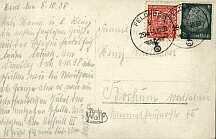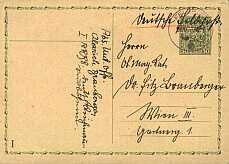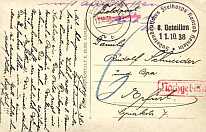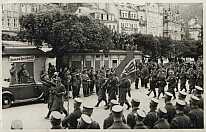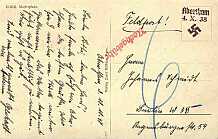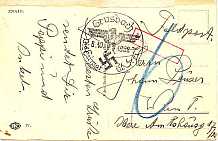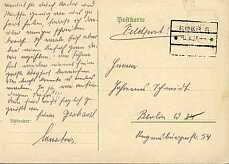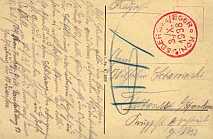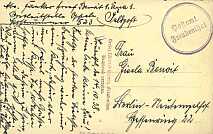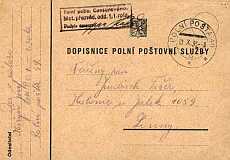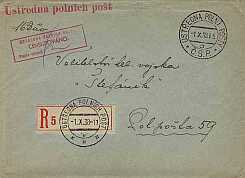Under
the terms of the Agreement the occupation was delayed 10 days, from 1/10
- 10/10-1938, so the Czech authorities could clear offices.
The German fieldpost units moved into Sudetenland with the German
troops and stayed here to the 20/10-1938.
The fieldpost service was a "Übungsfeldpost" (trial
fieldpost).
They brought with them supplies of German stamps as well their own
fieldpost cancels.
The fieldpost cancels had different numbers.
Which numbers were assigned to which military units is not known.
The following field post office numbers have been recorded so far:
13, 20, 24, 28, 30, 45, 67, 239, 294, 374, 405, 473, 570, 800, 900, 936.
|
Picture postcard with both Czech and German postage stamps canceled with a fieldpost cancel from fieldpost office number 294. |
|
Mail
to and from the soldiers had to be paid at the German postal
rates and it was allowed to use what there was of Czech stamps. |
Czech Postal card canceled with a fieldpost
cancel from fieldpost office number 900.
